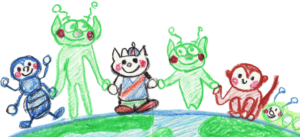KIS創立の理念
- コミュニケーションのその先の人間教育
- 子ども達に残したいのは生きる力の教育
- 健康・活発・好奇心旺盛・和して同ぜず
スローガン
国境のない国 キティインターナショナルスクール
「見知らぬ海外(くに)で迷子になっても、自力で帰宅できる子を育てませんか?」
KISでは、様々な国籍の生徒さんが楽しく活動しております。
小さな国際人に、もっともっと逞しく育ってほしい。そんな願いを込めた活動をしてまいります。
Institutional policies
-
Human education beyond communication
-
What we wish to import and convey to children is an education with a zest for living
-
Health, Vigor, Curiosity, Cooperation within reason
Slogan
Kitty International School knows no boundaries
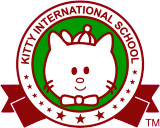
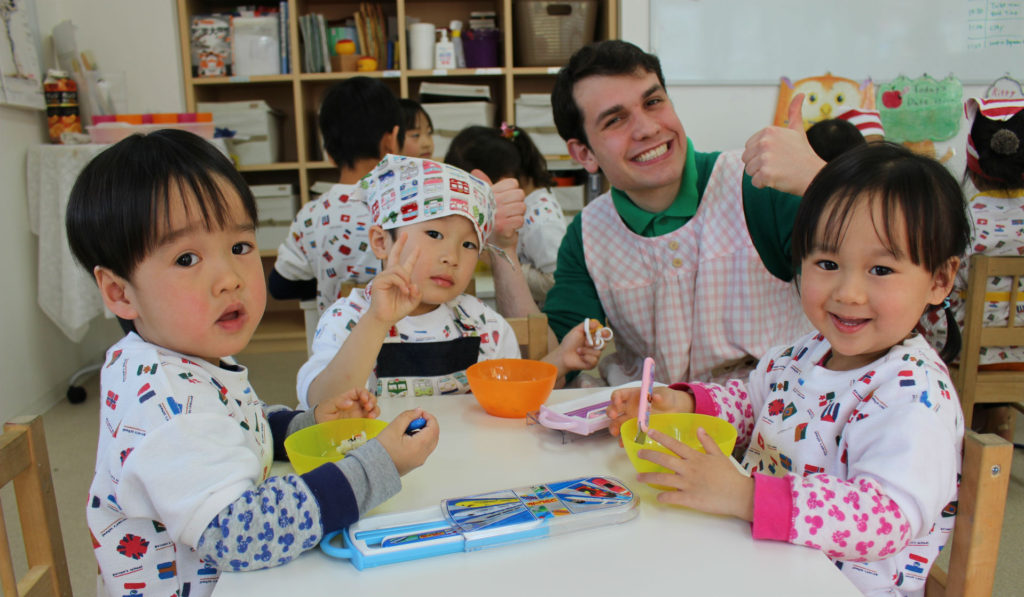
英語・英会話は使って初めて役に立つもの。 つまり、私たちにとって、英語・英会話は学問の対象ではなく、言葉はコミュニケーションの道具だと考えています。
また、子どもの成長は、楽しいこと、夢中になれることの中にあります。 そして、それが学びへの最良の道であることも直感的に知っています。 さらに、子どもが英語・英会話で最も夢中になれる楽しいこととは、大人と同じように、英語・英会話の実践力が付いていくことにあるのです。
だから私達は、夢中になれない英会話や、楽しい英会話と言いながら明確な目的意識や十分なカリキュラムがない遊びだけの子どもの教室を子ども英会話スクールとは言いません。
私達は、言葉はコミュニケーションの道具であると規定することで、その目的が、言葉の学習の先にあるコミュニケーションであることにも気付きます。 子どもにとって英語・英会話の知識や技術は必要ですが、それだけでは、ほんとうのコミュニケーションを充実させることには不満足だからです。
KISの子ども英語・英会話は、自分を大切にすること、自分の意見を持つこと、人(異文化)を理解・尊重すること、をベースの思想として成り立っています。
子ども英会話と幼児教室のキティインターナショナルスクール(KIS)、プリスクール、KIS英語キッズのすべてのコース、スクールは、英語・英会話の習得を中心テーマとして行っていますが、それらの活動を通じて、『未来に生き続けるたのもしい子供達を育て、また、その継続によって、国際化する社会と人間の未来に貢献する。』という使命感を持ってスクール運営をしています。
Kitty International School
about Our School
Kitty International School is a preschool & kindergarten where children come to learn English and build a strong foundation for life. Our curriculum includes science, art, life skills, and plenty of FUN! We know that each student is unique and we aim to foster their individual strengths while helping them prepare for life’s challenges.
KIS is proud to have been teaching children for over 40 years.
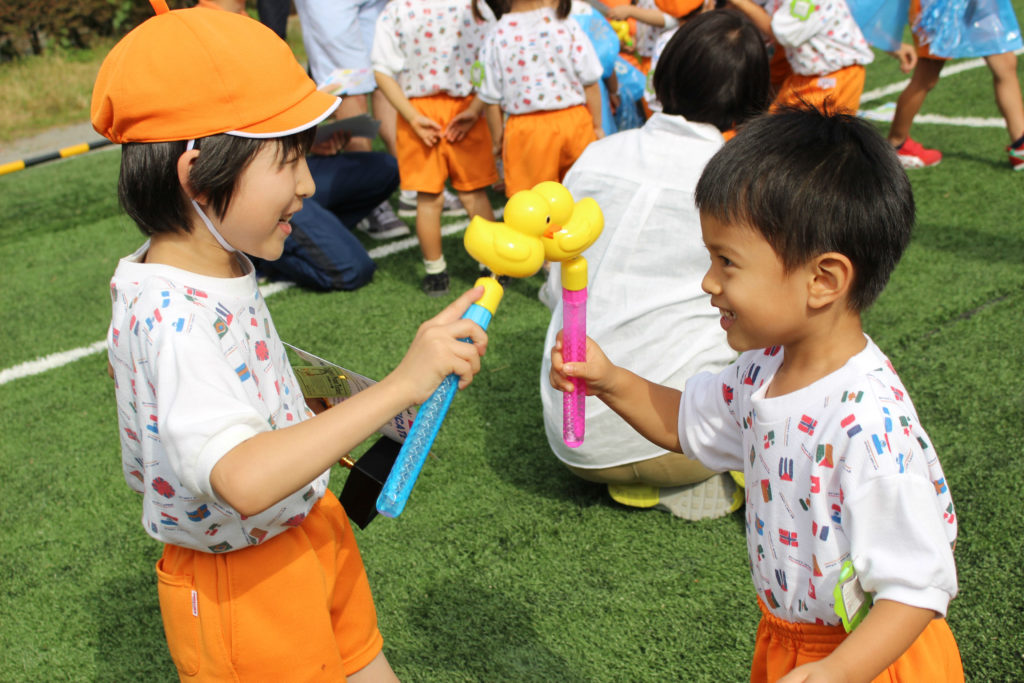
赤ちゃんからのキッズ英会話・インターナショナル幼稚舎(保育園)・小学生放課後英語学童・英検・中学生ディスカッションクラスまで。子どもと英語専門のインターナショナルスクールです。二子玉川を中心に、等々力・品川(旗の台)・横浜キャンパス全6スクールを運営しています。Kitty(キティ)とは英語で子猫の意味です。創業当時子猫のような可愛い子どもたちの集まる世田谷の等々力本校にてその名がつけられました。
世田谷区でこども英会話の環境を提供し続けて40周年。多くの卒業生が国内外で活躍しています。KISでは、もし海外で迷子になっても自力で帰宅できるような逞しい生徒ばかり!また、幼児からのロンドン現地校留学で貴重な経験も可能にする、本格志向が特徴的なスクールです。
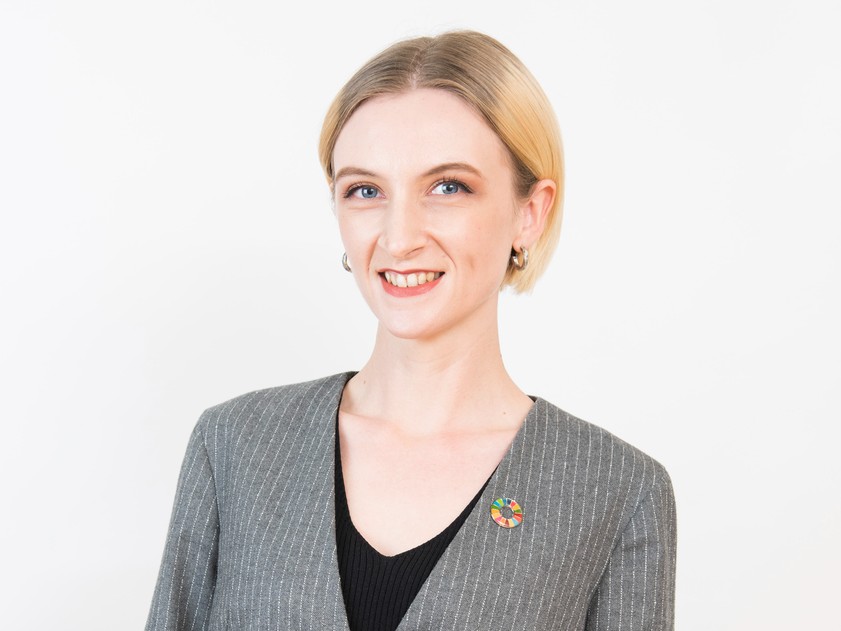
KIS Charter
Charter
All children have the right to be accepted and loved by society, as well as the right to pursue their dreams.
All children have the right to build their own futures without relying on the will of adults.
All children have the right to not be discriminated against, and to pursue happiness and equality, and good health.
All children have the right to utilize all of their skills and use information to excel in their own life.
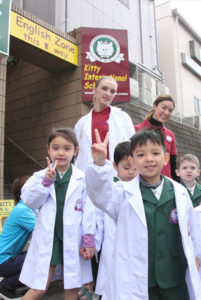
すべての子どもは、社会から愛され、受け入れられ、あらゆる可能性を追求する権利がある。
すべての子どもは、大人たちの意思によらず、子どもたちの未来を子供たちで築き上げる権利がある。
すべての子どもは、あらゆる差別を排除し、健康・幸福・平等を追求する権利がある。
すべての子どもは、自由闊達な活動と進歩のために、あらゆる知識や情報を収集・活用する権利がある。
Head Campus Officer of KIS
Caryn Morgan
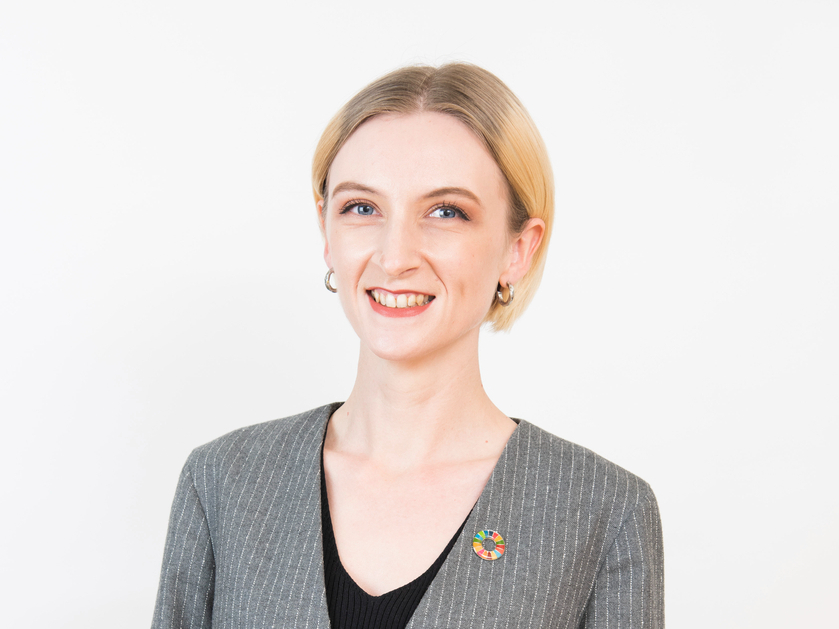
A word from head of School
We are International school where children come to learn in an English environment and build a strong foundation for life through intellectual education, physical education, music, fine arts, and learning life skills. We created a place to obtain these necessary experiences while keeping in consideration a student’s home environment, developmental stages, situations, as well as their individual feelings.
Kitty International School offers classes for a wide range of ages starting with our Kira-Kira lessons for mothers and babies through advanced high school discussion-based classes.
Our teachers are from countries around the world including the United States, England, Australia and more! We have chosen them for their love of sharing English and teaching.
Come learn English with us and explore cultures from around the world!
At KIS Kindergarten, until their graduation, we expect our students to grow up with the most important and final goal that is to build a strong foundation for life as well as to learn English language through immersion. It can be said that the strength and foundation for life can be gained through intellectual education, physical education, music, fine arts, and learning life skills. We believe that all of these things contribute to and build a strong foundation for life.
KIS also creates an environment to obtain these necessary experiences while keeping in consideration a student’s home environment, developmental stages, situations, and their individual feelings. We help to encourage students’ independent ideas and positive actions.
All children are unique and every child is worthy of respect as a pioneer of the future. We as parents pass on our hopes, dreams and strengths of life to each child in various forms. And in turn, the children will pass down these things to their own children, and so on through the next generations. We believe it is important to pass down something more than just property to our children.
What do you want to pass down to your child?
We believe that we can start with small things together at KIS. We hope see you soon.
失敗できないスクール選び~入学を決める前の5つの質問~
Message from General Kindergarten Principal
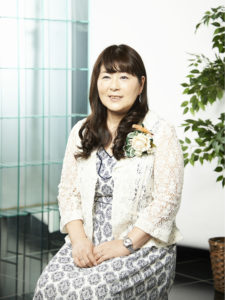
General Kindergarten Principal
名誉園長
Teresa Yoshiko
ある日突然、「お受験(塾)の先生に、“インターナショナルスクールなんてとんでもない。そんなところに通っていたら小学校受験なんて出来ませんよ”と言われまして、転園させることにしました。」と、やや上気した様子でおっしゃる保護者の方がいらっしゃいます。塾を変えないで園を変えるお母様の思考回路は、さすがに今時なのかと不思議に思いますが、それはさておいて、皆様には真実を申し上げておこうと思います。
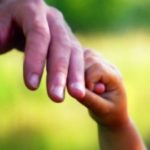
私は、KISで40年近くの間、生徒さん方の有名小学校、超難関校進学実績を見てまいりました。どの難関校への実績もあります。しかしながら、KISの退園とお受験合格率の相関関係は全くないことがわかります。KISを退園して受験に集中した方の合格率は全く上がっていません。
実は、それどころか、退園せずに小学校受験した生徒さんの合格率の方がずっと高いことがわかっています。
なぜ、そんなことが起こるのでしょう? 賢明な皆様にはもうお分かりと思いますが、答えは宿題にしておきますね。
(例えば、「目の前のパズルができる」だけで合格できるほど、小学校受験も中学校受験も甘くありません。)

もちろん、KISからは老舗インターナショナルスクールへの進学実績も多数ありますし、LCA国際小学校、ロンドンGHS姉妹校等との交流もあります。
KISへのご入園をご検討される方は、これからお話しする5つのポイントをご参考に、絶対に失敗できないスクール選びをなさっていただけることを願っております。
[1]
得意なことを伸ばしてあげることは、とても大切なことですし、良いことです。
幼児期に適切で様々なトレーニングを体験することによって、得意なことを発見することも、トレーニングによって、できなかったことが出来るようになり、自信をつける効果もあります。
しかし、技能教育に目を奪われてスクールを決めてしまうことはやめましょう。

[2]
幼児期に最も大切なことは、そのような目先の事ではなく、情熱的な信念を持ち、全人格的な可能性を育ててあげることが出来るかどうかということです。
地味ではありますが、創立の理念や歴史を見ることが、スクールの立ち位置を知るための重要なカギとなるでしょう。
KIS創立の理念は、もうご存知と思いますが、もう一度ご確認をお願いいたします。
1.「コミュニケーションのその先の人間教育」
KISは、コミュニケーションのその先の人間教育を目指しています
2.「子ども達に残したいのは生きる力の教育」
私たちが、子どもたちに残したいこと、伝えたいことは、お金にはかえられない生きる力の教育です
3.「健康・活発・好奇心旺盛・和して同ぜず」
KISが目指す生徒像です
また、「KIS憲章」にも一度目を通していただき、全面的にご賛同いただく必要があります。
情報過多といわれる今の時代には、トリッキーな文言が飛び交いがちですが、やり直しのきかないスクール選びの失敗は避けたいものですね。
幼児教育の要は、「今すべきこと、今しか出来ない事を今やる。」ということの他はありません。
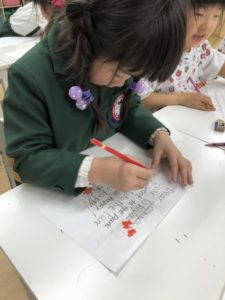
[3]
スクール選びで最も大切なことは、自分の頭で考え、自らの目で見て判断することです。
「KISでは、フォニックス(英語を読むための指導)をしていますか?」と聞かれることがあります。
たしかに、フォニックスは幼児英語教育おいて、必要でもあり、優れた指導メソッドでもあります。
しかし、はて? どうしてそのような質問がでてくるのか不思議に思って尋ねてみると、次のような理由が見えてきました。
Case1 (入学前) 街の英会話スクールでフォニックス指導の素晴らしさを見て、聞いた。入学しようと考えているKISでも同じようなフォニックス指導が受けられるのか確認したい。
Case2 (英会話クラスに入学後) 普段は子供の英語教育にあまり関心を示さない父親に、「これ<Watermelon>読めるか?」と言われたり、「じゃあ、<What’s your name?>これは? これぐらい読めるだろ?」などと言われて何も答えられない。 「なら、KISに通う意味はあるのか?」ということになった。
さて、皆様にも質問です。 「下の英語を読めますか?」
<Watermelon>
<What’s your name?>
実は、英語は苦手、という保護者の方でも、前掲の英語が読めない方にはまずお目にかかりません。
つまり、誤解を恐れずにあえて申し上げますと、日本の教育システムで放っておいても読み書き出来るようになる程度のことは、5歳児のプライオリティ上位に掲げるのはナンセンスだということです。
実際のところ、KISの中では、一般に知られているフォニックス指導よりも高度で応用力のあるフォニックス教育が、KIS All in all教育のなかに位置づけられ、行われています。
皆様に知っていただきたいことは、一般的に知られているフォニックス教育は、英語があまり得意でない人でも、基礎知識と教材と時間があれば家庭でも十分に指導できるということ。 それ「だけ」をやるなら、スクールに通う必要もないほどのことだということです。
そして、もう一つ重要なことは、読み書きへの関心と適正年齢には個人差があり、3歳でも適した幼児はおられますが、年齢は手指の運動能力と論理的思考の発達にも関連しており、平均すると、9~10歳以降で読み書き文法(ルール・理論)の学習効果がどんどん高くなることがわかっているのです。
もちろん、幼児期にも読み書きのチャレンジをすることは必要ですが、焦ってはいけません。
先進的なフォニックス指導を日常的に受けているKISの生徒は、例えば、「dog(いぬ)」よりも「hippopotamus(かば)」を先に覚え、すぐ読めるようになります。 しかし、それは幼児の特性であって、特別な意味を見出すのは誤りなのです。
3~6歳児が英語を読むということは、英語教育の一番の目的ではありません。
[4]
幼児期の教育には、しなくてはいけない事と、してはいけない事があります。
幼児期にしなくてはいけない教育とは、将来、人生の基礎となる総合的な人間教育です。そして、してはいけない教育とは、この総合的な人間教育を妨げる(例えば、発達段階を無視したり、視野の狭い)教育ということが言えます。
教育基本法の第一条には、「教育は、人格の完成を目指し、平和で民主的な・・・(後略)」と、教育の在り方が規定されています。
ご存知のように、KISは40年近くの間、私教育機関として、公教育では出来ない事を独自の理念に基づいて積極的に力強く推進してきました。しかし、KISの教育理念は、あくまでも英語そのものが目的ではなく、英語を手段とした総合的な人間教育にあります。
KISの目指す総合的な人間教育とは、まさに創立の理念に書かれている通りとなりますが、スクールを選別するためには、もちろん、具体的なスクールプログラムも見ていく必要があります。
KISでは、年度によってプログラムが入れ替えになることもありますが、ほぼ毎年、下記のようなプログラムを実施しており、成果を上げています。
- 入学式をはじめとした各種セレモニーの経験
- 劇/歌/ダンスの発表体験
- ロンドンGHS姉妹校留学プログラム
- 手打ちうどん体験
- 小学校等との相互訪問交流
- その他の地域交流(子どもすもう大会等)
- 暗唱とスピーチコンテストプログラム
- 季節の行事(ハロウィン等)体験
- スプリング/サマー/ウインタースクール
- スクールお泊り会
- ズーラシア動物園への訪問体験(遠足)
- スポーツデイ(運動会)
- 日々の散歩(運動/自然観察/交通ルール)
- チームゲーム等体験(社会性/協力/協調性)
- エジソン(算数書き方)教育
- 英検/児童英検
- アートプログラム(創造性教育)
- 楽器と音楽教育
- 体操/ダンス/リズム
- 食育(食習慣とマナー教育)
- 植栽/水やり/収穫体験
- お習字体験
- 知育玩具体験
- 科学遊び/実験
- プール遊び
- 社会見学(警察署など)
- クラス発表(人前力/個性教育)
- 生活習慣(挨拶/手洗い等)の体得
[5]
ところで、英語力、特に英会話力を何で測るか、明快に答えられるスクールはどれほどあるでしょうか?
KISでは、生徒同士が英語で話しているかどうかを見れば、そのスクールの実力がわかると考えています。
KISが発足した当時は、“ネイティブでも使わないような難しい英語を、試験では読んだり書いたりできる東大生がいます。しかし、街で外国人から話しかけられただけでしどろもどろになってしまい、全く会話ができない。”というようなことが、テレビなどでたびたび取り上げられていました。
残念ながら、今でも、読み書き文法中心の英語の勉強と会話力は必ずしも一致しないようです。
では、KISに通う3~6歳のキンダー生はどうでしょうか?
いつでも、普通に、100%英語で活動している姿を見ることが出来ます。
他の英語系幼稚園を見学された方や、1年以上子ども英会話教室に通わせた経験のある方が、KISの子どもたちを見てその会話力に驚かれることがあります。
「先生と生徒ではなくて、生徒同士が、自由に、自然に、流暢に英語を話してるのをみたのは初めてです。」とおっしゃる方も多くおられます。
スクール選びの大切な条件の一つが、「英語を自由に話せるようになって欲しい!」ということでしたら、スクールの生徒同士が日常的に英語で話しているのかを確認することが重要です。
あとがき
私自身の子育て経験を振り返りながら、いま子育てに取り組んでおられる、お母様やお父様にお会いするたびに、心から「お疲れ様!がんばって!」とエールを送りたい気持ちでいっぱいになります。
さらに、多くのお母様、お父様が、真剣にお子さんと向き合い、出来る限りの環境や選択肢を子どもに与えてあげたいとスクール選びをされていることが伝わるたびに、胸が熱くなります。
長い間、幼児教育にかかわってきたせいか、それとも年を重ねてきたせいか、年々、目先のことよりも、子どもたちの将来に続く成長に目が行くようになっています。
もちろん、残念ながら、目的や適性の異なる、全てのお子さんと保護者の方にとってKISが最良の選択という訳ではありません。
ですが、もしも、ご縁がございましたら、いつの日かお目にかかれることを楽しみにしています。
ご家族様、皆様、どうぞ時節柄ご自愛いただきますようお祈りいたします。
PS: 実は今、ペンを置こうとした時にちょっとしたニュースが飛び込んできました。
「入園させようとしていたインターの保育費や無償化の件で、東京都に問い合わせをしたら、そのスクール自体の届け出がないと言われてしまいました。 KISさんは、届け出をされてますでしょうか?」という外部からのお問い合わせがあったのです。
ご存知のように、保育施設は規模にかかわらず、児童福祉法、および厚生労働省の指導・通達により、各行政機関(東京都・横浜市等)に届出を行い、必要な書類を提出し、毎年、立ち入り調査を受けなくてはならないことになっています。
それらの結果で、保育施設指導基準を満たしているかどうかが判定されます。これをやらないと、国の定めた保育士がいないとか、毎月の避難訓練が実施されていないとか、法で定められた基準が満たされていないなどの問題が生じます。もちろん、届け出を行っても基準を満たしていなければ、その証明を受けることは出来ませんし、行政指導を受けることにもなります。
KIS二子玉川キャンパス、KISセンター南キャンパスは共に、保育施設指導基準を満たしているとの証明を受けています。 しかしながら、東京都や横浜市の該当するホームページを見てみますと、合格していない施設も存在しており、届け出すら行っていない施設があることがわかります。
失敗できないどころか、取り返しのつかないスクール選びにならないためには、そんなところもチェックが必要なのかもしれないと思い、末筆ながら付け加えさせていただきました。
 A word from the teachers
A word from the teachers
– Learning English from native speakers –
At KIS we want to equip children with a good grasp of the English language and how best to use it when interacting with English speakers. In order to do that we employ skilled teachers who understand how to convey complex concepts to students in a way which is easy to understand and fun to learn. Our teachers come from all over the world, including the U.S., England, Australia and more. Students have the opportunity to interact with people from a wide variety of backgrounds and gain a global perspective from a young age.
Typical KIS Lesson may include…
Welcome
The day begins with a warm welcome at the school gate. As the children arrive, teachers greet each child and parent with a friendly “Good Morning!” and ask “How are you?” All children smile and wave to their parents saying “See you!” and then we hold hands together whilst walking up to the classroom. We encourage each child to take off and put away their shoes by themselves. If they are having difficulty, they can say “Help please!” and we will then assist them into the classroom.
Once inside the children unpack their school bags and each give me their school passport saying “here you are!” The passport is a fun record of attendance whereby we ask the children to select a sticker to place on the day’s date.
Play time!
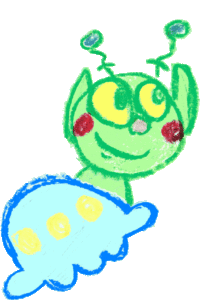 Once the children are ready after arrival, we gather together on the classroom’s ‘Red Circle’ to play with different educational toys. This is an important time used to get the children settled into the classroom and to introduce new vocabulary. For example, if a child is playing with the cooking toys we ask them the name of each plastic food. If the child does not know, we teach them and make sure they repeat the word. Depending on their age or ability, we also ask other questions, such as “what color is it?” or “how many?” and encourage children to respond in full sentences. E.g. “I have three red strawberries”.
Once the children are ready after arrival, we gather together on the classroom’s ‘Red Circle’ to play with different educational toys. This is an important time used to get the children settled into the classroom and to introduce new vocabulary. For example, if a child is playing with the cooking toys we ask them the name of each plastic food. If the child does not know, we teach them and make sure they repeat the word. Depending on their age or ability, we also ask other questions, such as “what color is it?” or “how many?” and encourage children to respond in full sentences. E.g. “I have three red strawberries”.
Play time ends with clean up time. We sing the “Clean Up!” song and work together as a group to clear away all the toys. We have different boxes for different toys and make sure each child is able to differentiate which toy belongs where. We try to make cleaning up as fun as possible by singing and dancing and telling each child they are doing a great job (hopefully this positive attitude will help parents at home!).
Song time!
Every day we begin with the “Hello!” song and sing together using actions (clapping and waving). Teachers then lead the group in singing and dancing our focus songs for the month (usually two). Even if the lyrics may be a little difficult to sing, all children are encouraged to try and have fun dancing with actions. Some songs require the co-ordination of group actions (e.g. London Bridge, Row Your Boat), whilst others use props like tambourines or beanbags.
Book time/toilet time
Whilst my class assistant takes each child individually to the toilet (for training), teachers sit with the rest of the group and read books. Teachers ask each child to say “chair please” before they are seated at the table and also to ask for which book they would like to read. Then we spend a short time reading with each child their chosen book and introduce new vocabulary using the pictures.
Snack time
This is a lesson in table manners. First, each child should say “juice please” before getting their cup and then wait until everyone has their juice. Then we will all count “One, two, three, CHEERS!” and do the “cheers” action before drinking. Each child should also say “snack please” before getting their snack and also “more please” if they want more. At the end of snack time the children say “finished!” and “tissue please”. We also teach them how to wipe their hands and mouth thoroughly and to also put their tissue in the bin when they are done.
Circle time
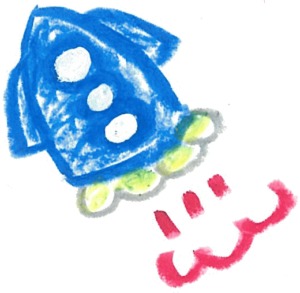 This is when the class comes together and we practice dialogue and curriculum. The dialogue we practice each day includes:
This is when the class comes together and we practice dialogue and curriculum. The dialogue we practice each day includes:
- “Hello, how are you?” / “I’m fine thank you”
- “What’s you name?” / “My name is …….”
- “How old are you?” / “I’m … years old”
- “Where do you live?” / “I live in Tokyo Japan!”
If the child needs help we say the answers with them and encourage them to follow the hand actions with me. Then we teach the curriculum topic assigned for that month using word and picture boards. For example, in a lesson about animals we show each animal board and ask the group and then individuals to repeat the animal name. Then we use the boards for games to test their knowledge. We give extra clues, like actions or colors, if they need help.
Art time
Here we practice coloring, pasting, folding (origami!) etc. We usually complete a worksheet that teaches curriculum topics, drawing or writing skills. If help is needed we hold the crayon with each child and practice writing their name together. When a special event is coming up, the craft activity will be related to that event (e.g. a Mother’s Day card or Halloween candy box).
Special Lessons
Every month there are special lessons scheduled which are always exciting for the children. For example, last month we conducted a special gardening lesson. We planted different vegetables in the school garden and was able to teach them the names of the different vegetable plants and skills such as digging and planting. Also each month we have a cooking lesson and every child is able to use their hands cooking delicious food! (e.g. okinomiyaki!)
Outside time
 Weather permitting, teachers take the class on a walk to the park or down a shopping street using the Kitty Go-Go Buggy. Along the way teachers will talk to the children about what we see and we wave and say hello to the passers-by. If we go to a park we will play together using a ball or tools for the sand pit.
Weather permitting, teachers take the class on a walk to the park or down a shopping street using the Kitty Go-Go Buggy. Along the way teachers will talk to the children about what we see and we wave and say hello to the passers-by. If we go to a park we will play together using a ball or tools for the sand pit.
Lunch time
A popular time of day! however also another lesson in table manners. All children are taught to say “please” and “thank you” and to eat respectfully at the table using utensils. We also chat with the children during lunch about the food they are eating and ask “is it yummy?”
Movie time/ toilet time
After lunch my class assistant will take each child individually to the toilet (more training) and have some quiet time with the rest of the class watching a video. We watch educational videos or classic stories like Peter Pan and talk to the children about what we are watching.
Puzzle time/block time
This is a group activity time where we complete a puzzle or make something using blocks together as a class. We teach the children how to share and co-operate with each other and work as a team. We then also clean up together whilst singing the “Clean-Up!” song.
Story time
We ask the children to sit quietly at the table while reading them a story using a talking story machine. Teachers explain the different things on the picture cards and use big expressions and funny voices for the characters.
Song review/ Good bye!
Every class ends with a review of our two action songs allocated for that month. Teachers then hand back the children’s passports and ask them to say “it’s mine!” and “thank you!”. After the children pack away there passports into their bags and have put on their coats, we hold hands in a circle and sing the “Good bye” song. The children are always excited at the end of class and look forward to sharing the day’s events with their parents.
